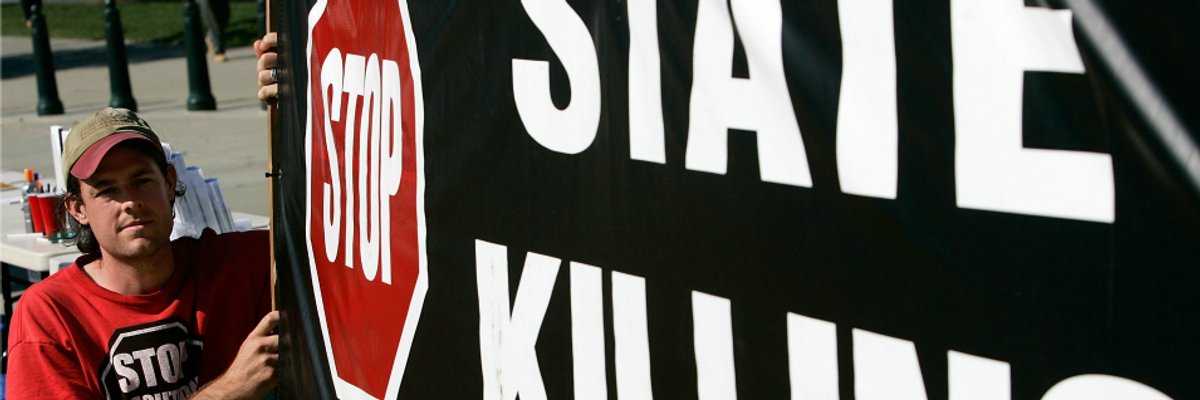Citing racial bias and arbitrary application, the Supreme Court of Washington on Thursday ruled that the use of capital punishment violates the state's Constitution, a decision that will ban the use of the death penalty going forward and immediately commuted the sentences of death-row inmates to life terms.
"Washington's Supreme Court showed courage in refusing to allow racism to infect life and death decisions. Let's hope that courage is contagious." --Jeff Robinson, ACLU"Today's decision by the state Supreme Court thankfully ends the death penalty in Washington," declared Washington's Democratic Governor Jay Inslee in response to the ruling.
"The court makes it perfectly clear that capital punishment in our state has been imposed in an 'arbitrary and racially biased manner,' is 'unequally applied' and serves no criminal justice goal," Inslee added. "This is a hugely important moment in our pursuit for equal and fair application of justice."
The ACLU noted the ruling makes Washington the 20th state in the U.S. to ban the death penalty, but the group said it "won't stop fighting until it's struck down everywhere in America."
As Slatereports:
the court held Thursday that capital punishment is imposed in "an arbitrary and racially biased manner" and "fails to serve any legitimate penological goals." The problems go beyond race: Most prosecutors in the state have stopped seeking the death penalty, so all current capital sentences arise from just six of Washington's 39 counties. The location of your crime may therefore determine whether you live or die. This "random" and "capricious" application of the ultimate punishment, the court ruled, fatally undermines any state interest "retribution and deterrence of capital crimes by prospective offenders."
There are currently eight inmates on Washington's death row. The court converted their sentences to life imprisonment and forbade the state from conducting any further executions. Because its ruling is based entirely in the state constitution, the U.S. Supreme Court cannot overturn it. And the court left no room for future reconsideration of its unanimous decision. Capital punishment is over in Washington State.
Jeff Robinson, deputy legal director and director of the ACLU's Trone Center for Justice at the American Civil Liberties Union, said the court recognized clearly that racial bias remains at the heart of "who should and who should die" in the America's skewed justice system.
"There is nothing unique about the role racism played in Washington's death penalty," said Robinson. "What is rare is the Supreme Court's willingness to call out the truth that has always been there."
Noting that both conscious and unconscious racial bias "plays a role in the death penalty decisions across America, influencing who faces this ultimate punishment, who sits on the jury, what kind of victim impact and mitigation evidence is used, and who is given life or death," Robinson said that this kind of "disparity can be described by many words -- but justice is not one of them."
Human rights groups and other death penalty opponents said they hope that others states, and ultimately the U.S. federal government, will now follow the other twenty states and ban the death penalty nationwide:
"Washington's Supreme Court showed courage in refusing to allow racism to infect life and death decisions," said the ACLU's Robinson. "Let's hope that courage is contagious."
